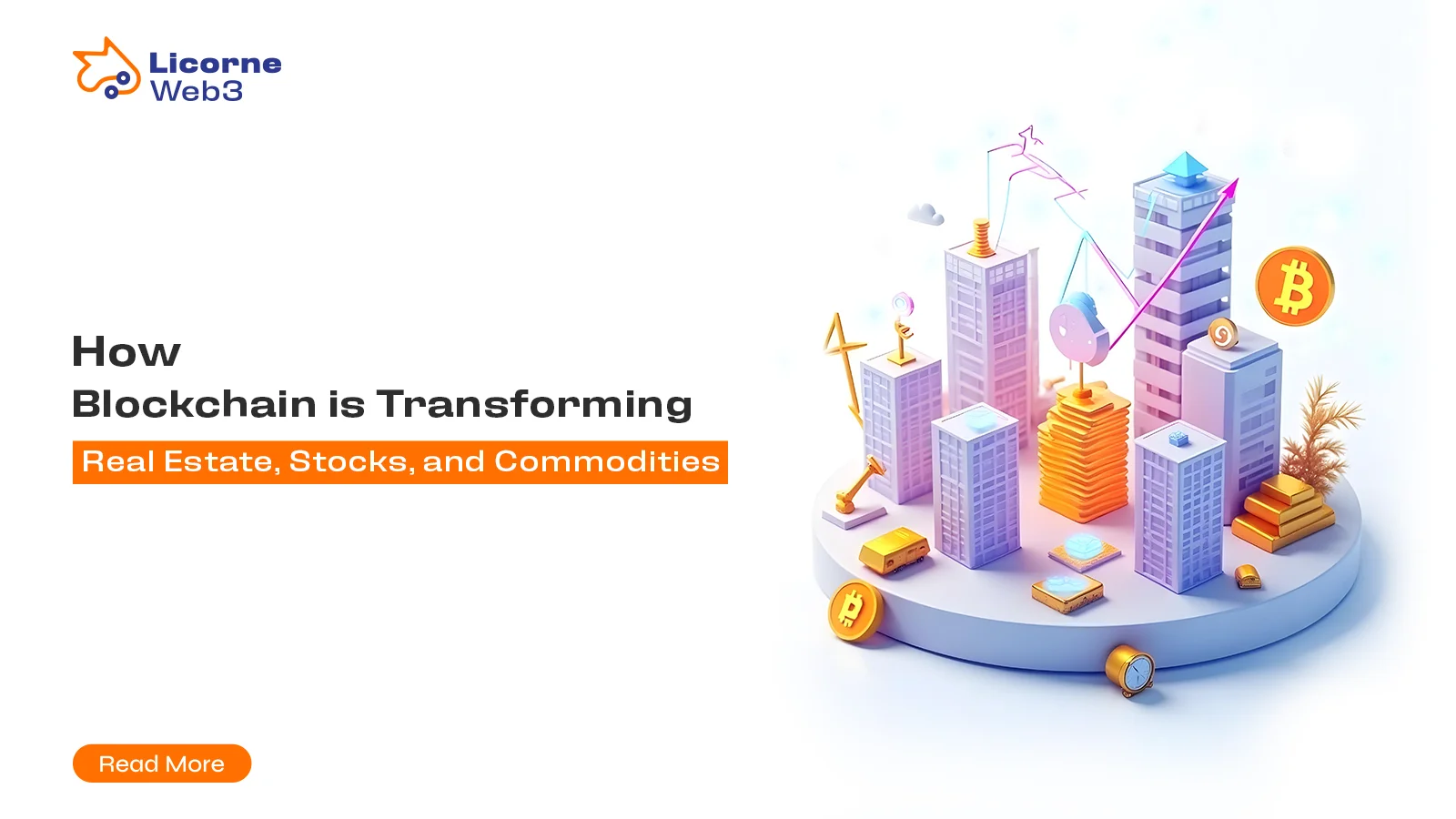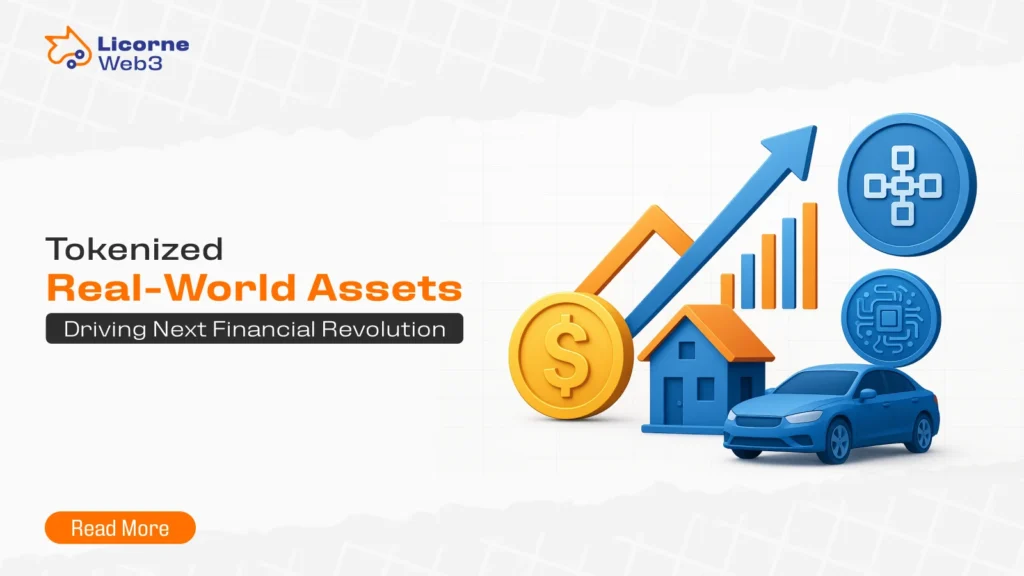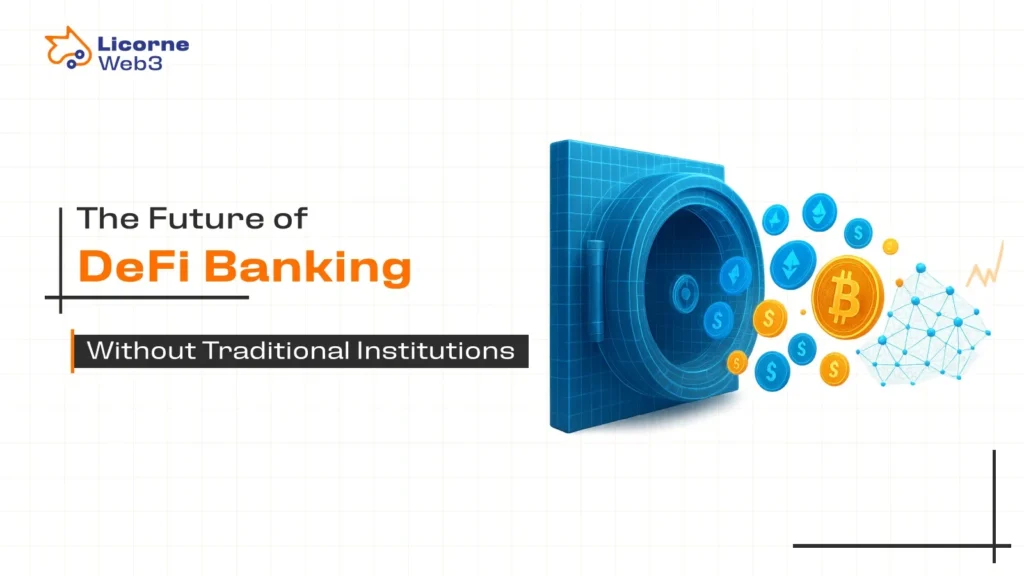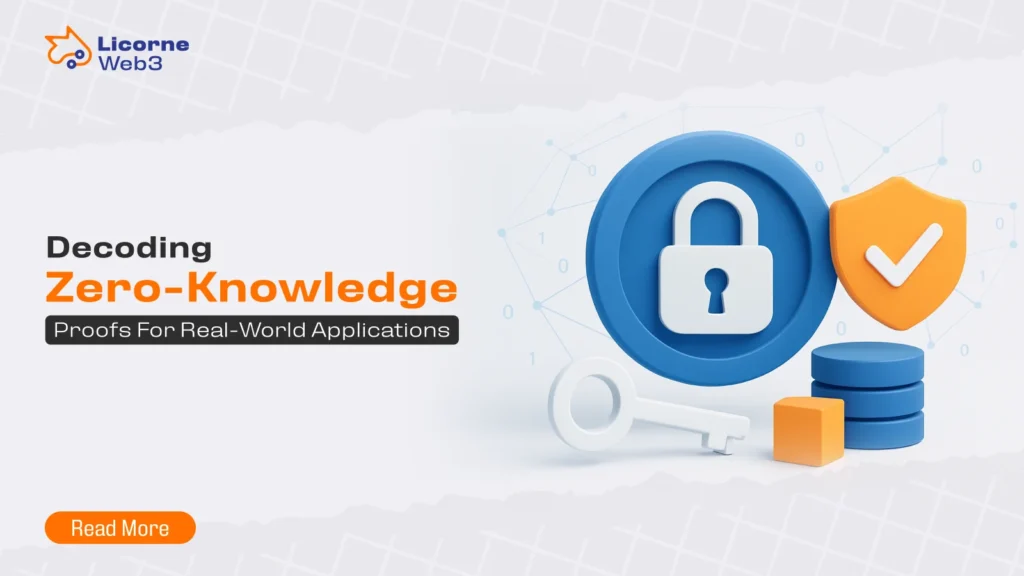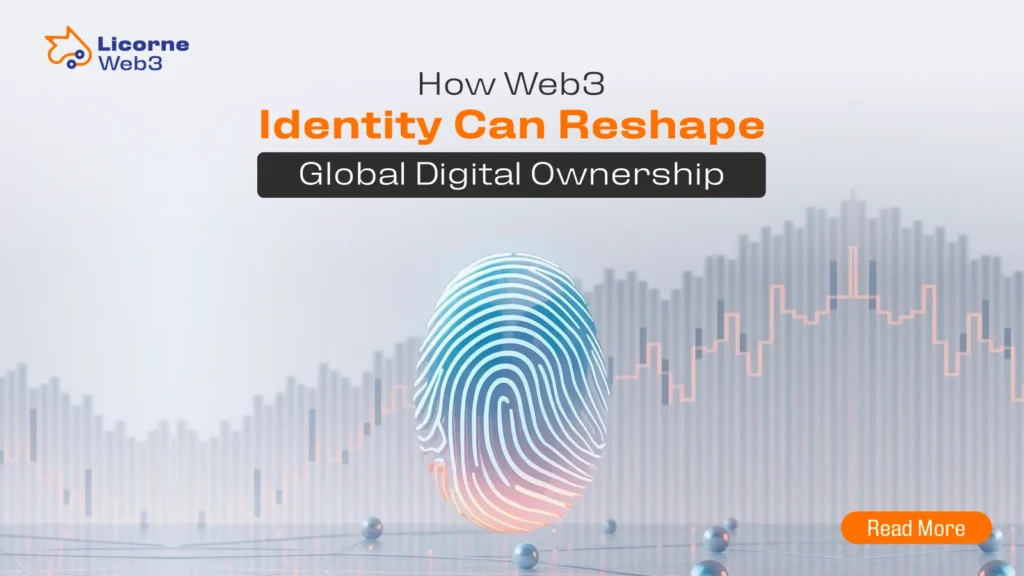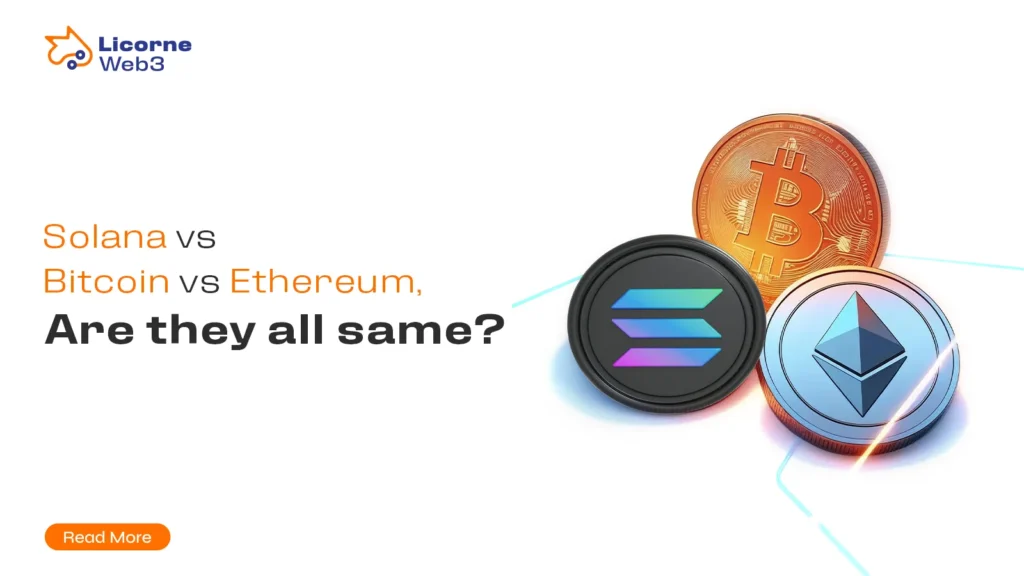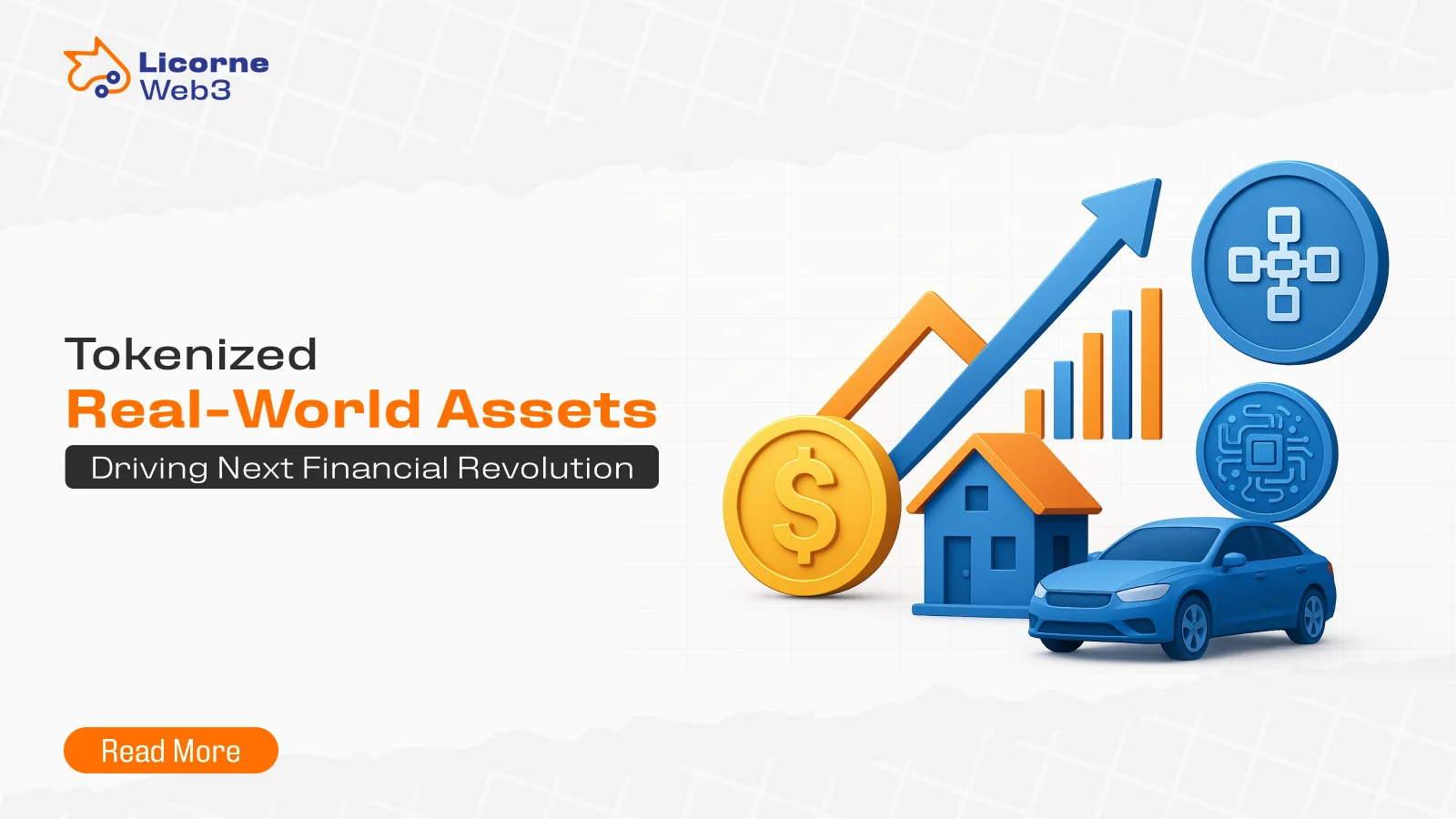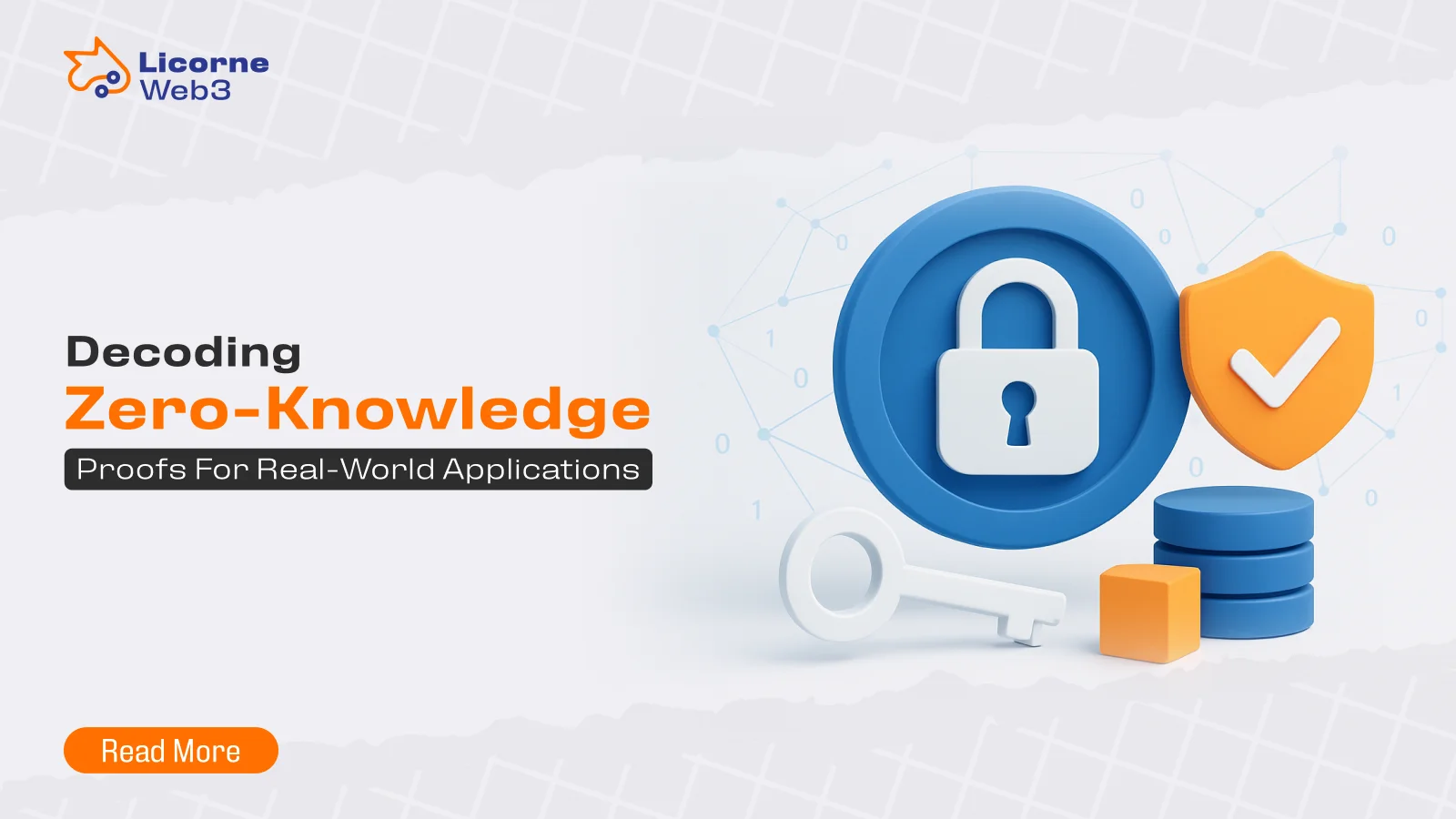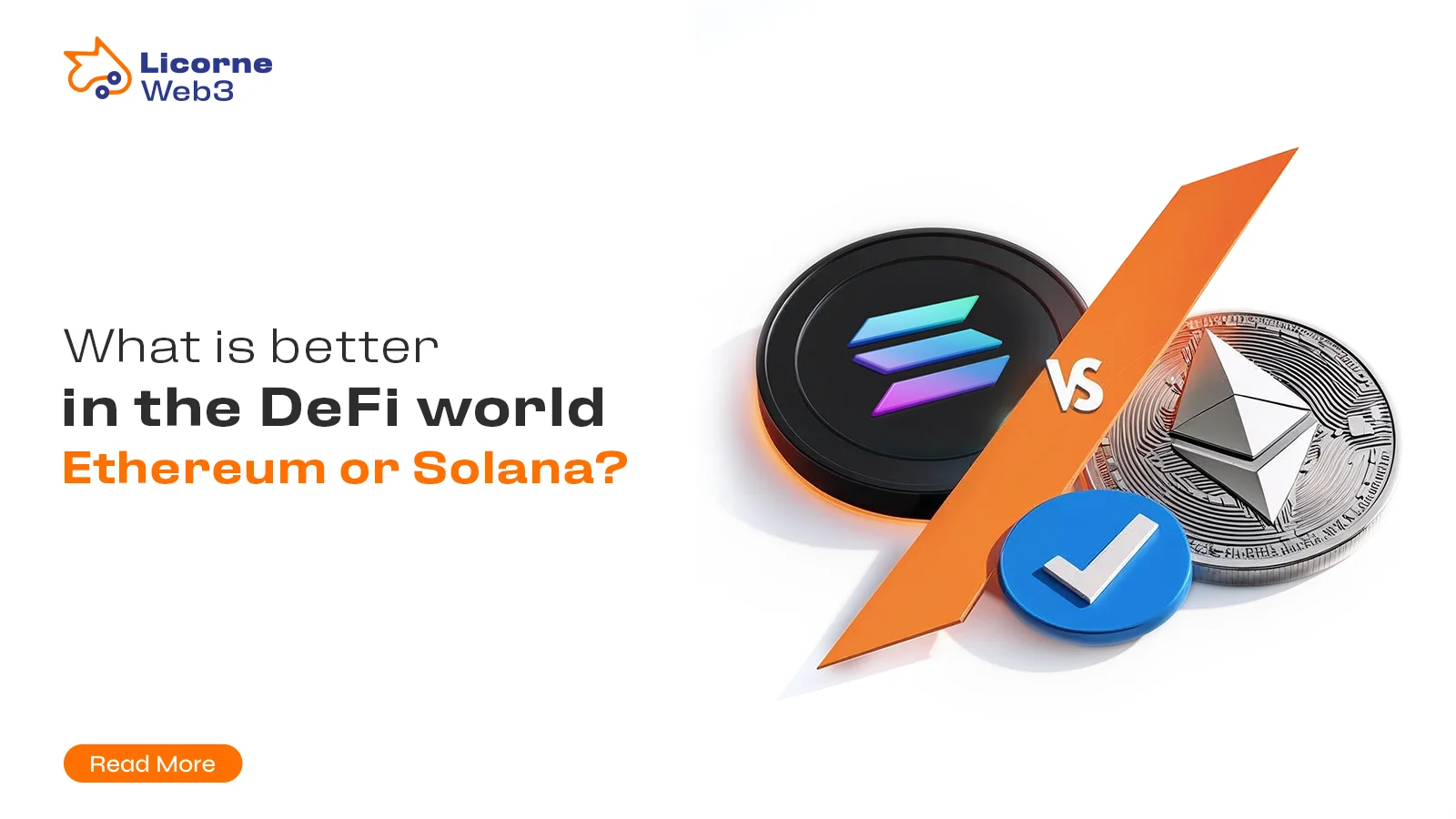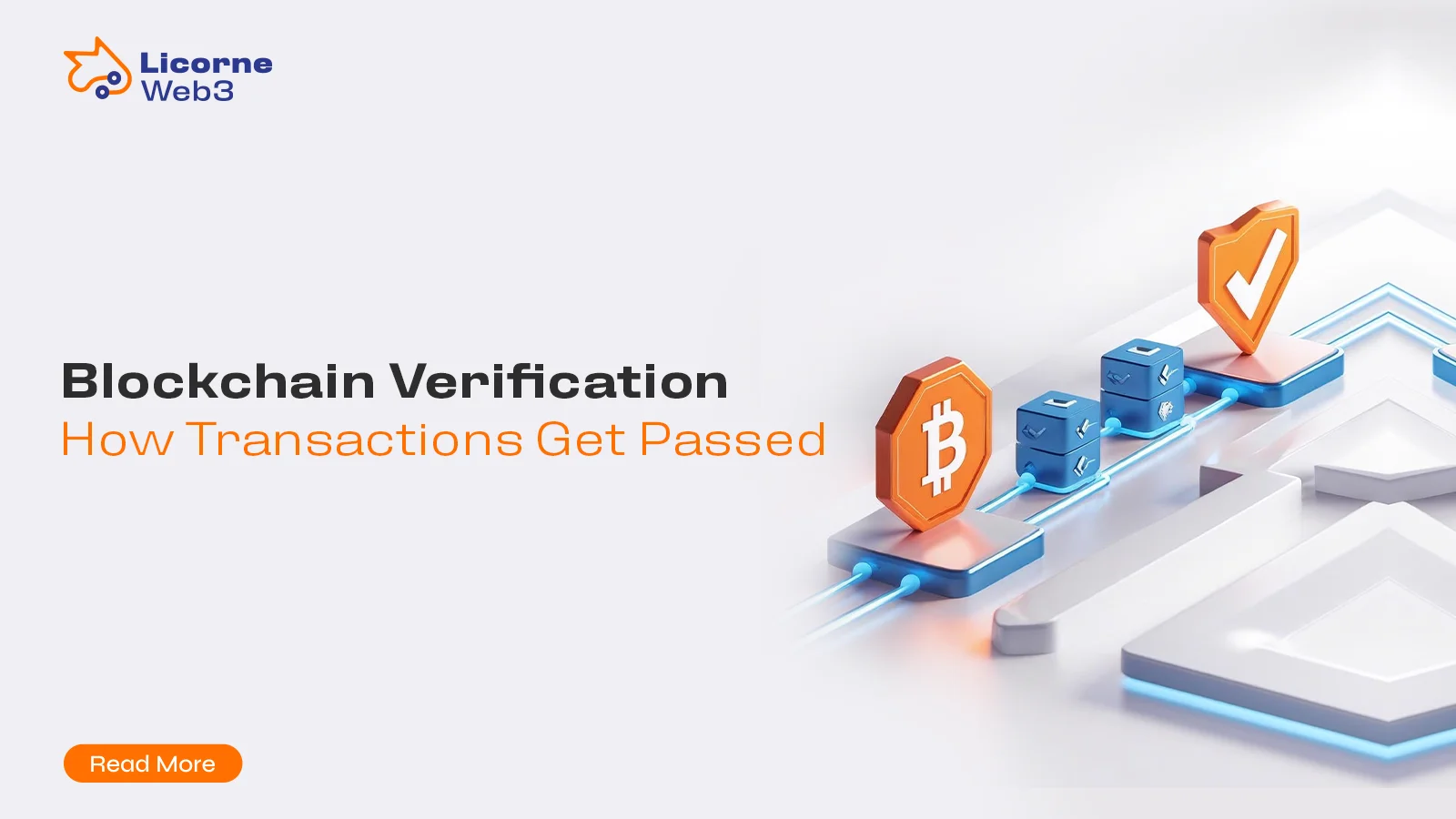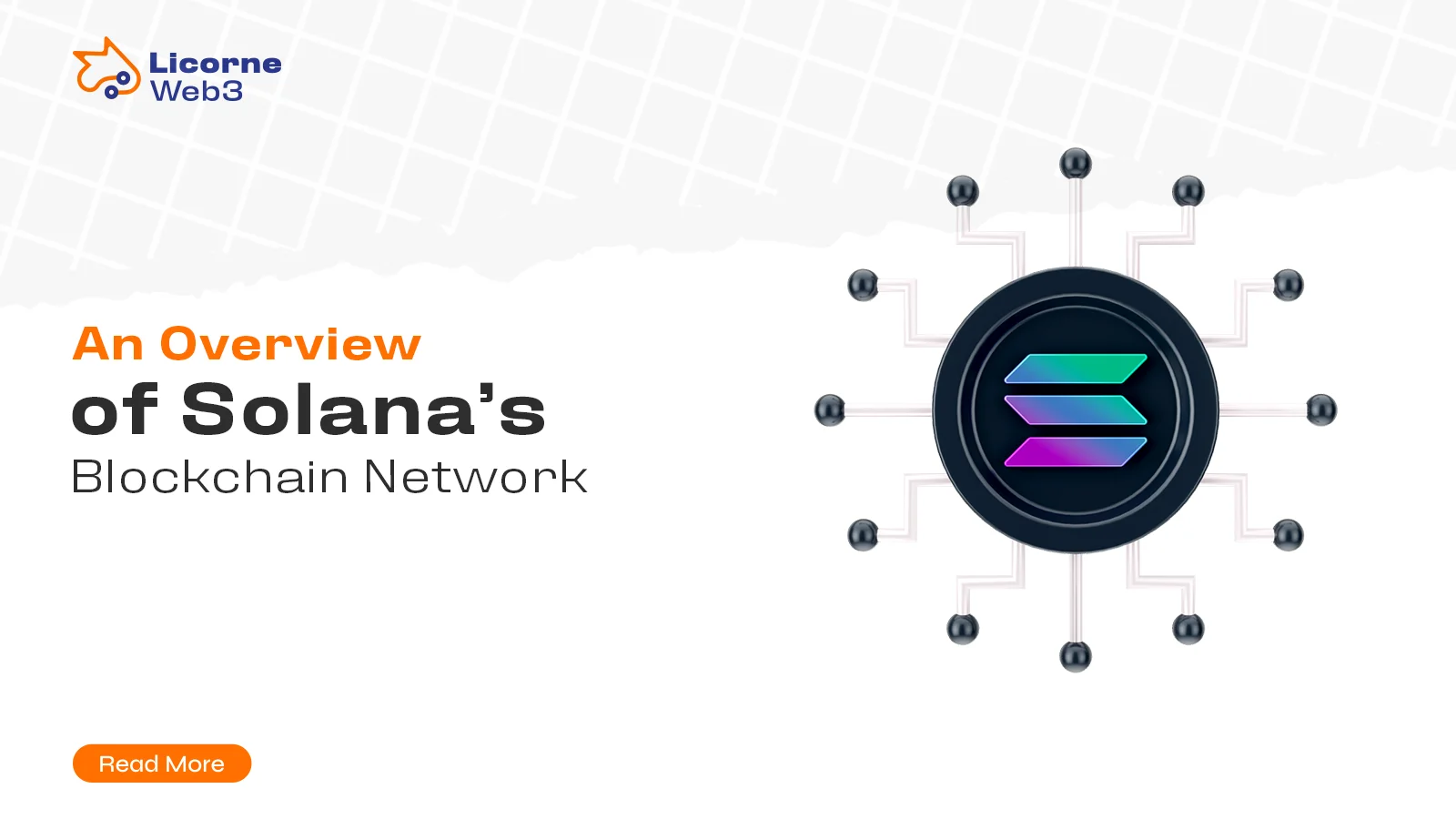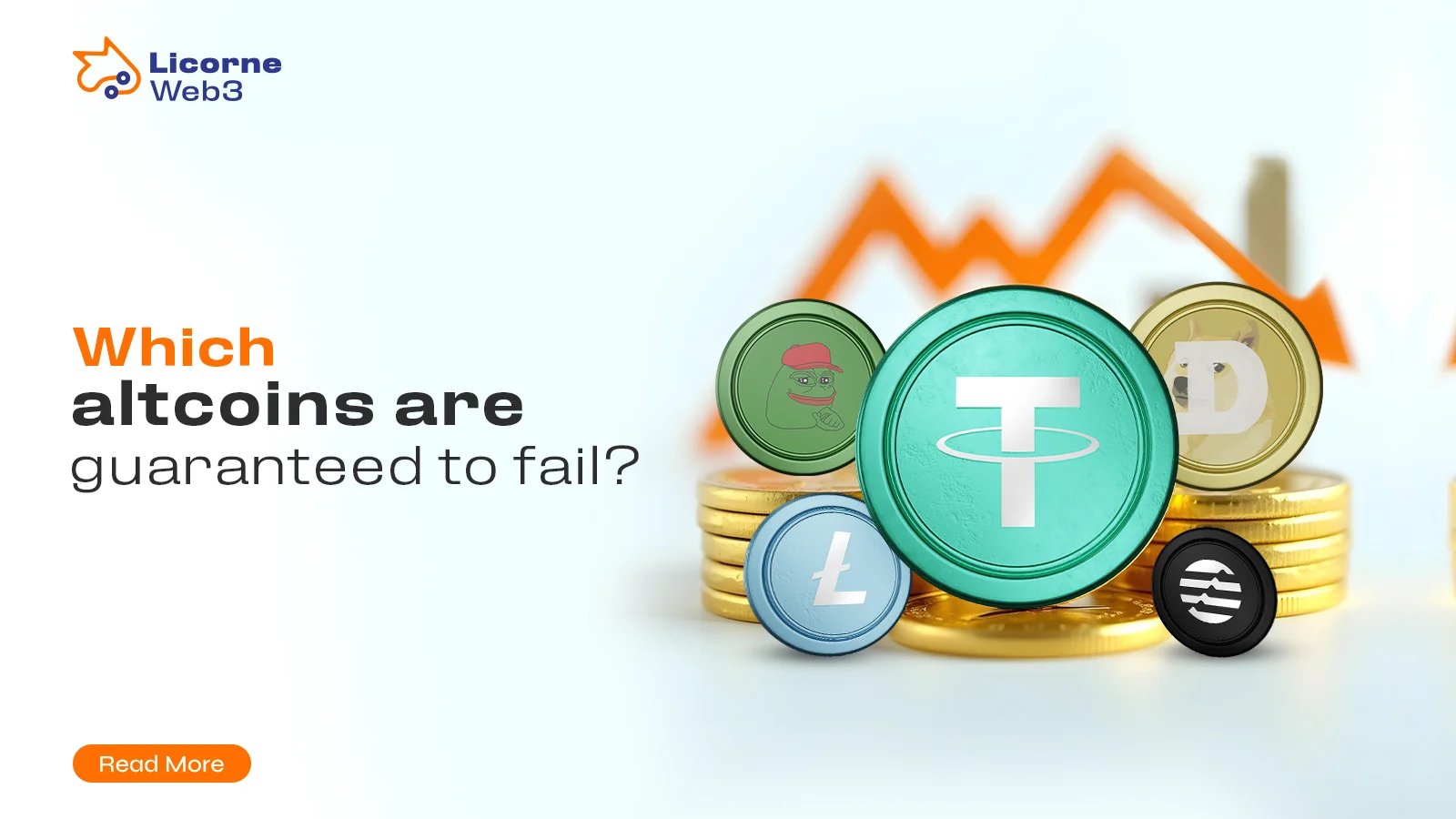Blockchain technology, originally developed for cryptocurrencies like Bitcoin, is now revolutionizing traditional industries such as real estate, stock markets, and commodities trading. By enabling secure, transparent, and decentralized transactions, blockchain is reducing fraud, cutting costs, and increasing efficiency across these sectors.
In this blog, we’ll explore how blockchain is transforming:
- Real Estate – Tokenization, smart contracts, and fraud prevention.
- Stock Markets – Faster settlements, fractional ownership, and reduced intermediaries.
- Commodities Trading – Supply chain transparency and digital asset tracking.
Let’s jump in!
1. Blockchain in Real Estate: Tokenization & Smart Contracts
Blockchain technology is reshaping the real estate industry, creating new opportunities for investment, ownership, and efficiency. Tokenization and smart contracts are two of the most groundbreaking innovations paving the way for this transformation.
A. Property Tokenization
Blockchain enables fractional ownership of real estate through tokenization, where properties are divided into digital tokens representing shares. This allows:
- Lower investment barriers – Investors can buy small portions of high-value properties.
- Increased liquidity – Tokens can be traded on blockchain-based platforms, making real estate more liquid.
- Global accessibility – Investors worldwide can participate without traditional banking hurdles.
Example: Companies like RealT and RedSwan tokenize properties, allowing investors to buy shares in commercial and residential real estate.
B. Smart Contracts for Transactions
Smart contracts are self-executing agreements embedded within blockchain technology, designed to streamline and secure real estate transactions. By automating processes and removing the need for intermediaries, smart contracts are transforming how real estate deals are conducted. Here are some key advantages:
- Eliminating intermediaries Traditionally, real estate transactions involve brokers, lawyers, and banks, each of which adds fees and delays to the process. Smart contracts eliminate these middlemen by directly connecting buyers and sellers on blockchain platforms. This not only reduces transaction costs but also speeds up the process, ensuring a more efficient experience for all parties involved.
- Automating payments & transfers Smart contracts execute predefined conditions automatically. For instance, funds can be released from escrow and ownership titles transferred seamlessly once all requirements are met, such as verifying payment, signing agreements, or completing inspections. This automation minimizes errors and accelerates the closing process.
- Reducing fraud With blockchain’s decentralized and immutable nature, smart contracts provide a tamper-proof record of ownership and transaction history. This transparency reduces the risk of fraud and ensures that all parties can trust the integrity of the deal.
Example: In Sweden, the Lantmäteriet (Land Registry) uses blockchain to speed up property transactions.
C. Fraud Prevention & Transparency
Blockchain technology is redefining fraud prevention and transparency in the real estate sector, addressing long-standing issues with innovative solutions.
- Immutable land registries: Blockchain creates permanent, tamper-proof records of land ownership across various real estate sectors, ensuring that once a title is registered, it cannot be altered or forged. This drastically reduces instances of title fraud, providing greater security and trust in real estate properties and transactions. Such technology benefits real estate professionals by offering reliable verification systems and creating confidence among stakeholders involved in real estate projects.
- Digital identity verification: through advanced blockchain-based systems ensures that the identities of buyers, sellers, and intermediaries in the real estate sectors can be securely verified using digital credentials. This process minimizes fake transactions and ensures that all parties involved are legitimate, further safeguarding the integrity of real estate investments, properties, and real estate projects.
- Public ledgers: Blockchain operates as a decentralized public ledger, offering complete transparency regarding the ownership history of a property. Anyone can access the blockchain to verify past transactions and confirm rightful ownership, eliminating ambiguity and reducing disputes over property titles.
Impact: Countries like Georgia and Ghana use blockchain-based land registries to combat corruption.
2. Blockchain in Stock Markets: Faster & More Efficient Trading
Blockchain technology is transforming the stock market landscape by introducing faster and more efficient trading mechanisms. With its decentralized nature, blockchain eliminates delays and enhances the overall trading experience for investors and institutions alike.
A. Instant Settlements (T+0 vs. T+2)
Traditional stock markets rely on a settlement cycle of 2-3 days (T+2), where the finalization of trades involves multiple intermediaries such as banks, clearing houses, and brokers. This delay increases counterparty risks, operational costs, and market inefficiencies. Blockchain simplifies and accelerates this process:
- Instant settlements (T+0) – Blockchain enables real-time trade finalization, known as T+0 settlement, within industries such as the real estate industry. Transactions are executed and recorded instantly on the blockchain, creating an immutable record that ensures transparency and reliability in real estate transactions and stock trading alike. This immediate finalization minimizes risks associated with price fluctuations during the settlement window and improves cash flow for traders. The adoption of blockchain in these sectors opens up more efficient ways to handle trades, including self-executing contracts that further automate the process.
- Lower transaction costs – Lower transaction costs are another significant advantage. By removing intermediaries and automating processes through self-executing contracts, blockchain reduces fees and operational expenses. This cost-saving feature benefits investors while ensuring a faster and seamless trading experience. Similarly, in the real estate industry, real estate agents and stakeholders managing real estate assets gain from these streamlined systems that reduce delays and costs in real estate transactions.
- Enhanced security and transparency – Enhanced security and transparency are at the core of blockchain’s value proposition. Its decentralized and immutable record ensures that all transactions, whether in stock trading or real estate transactions, are securely stored and can be verified by authorized parties. This reduces errors, prevents tampering, and builds trust among stakeholders. As blockchain real solutions evolve and integrate into the future market, industries like real estate and finance are on the cusp of unprecedented innovation and efficiency.
By leveraging blockchain technology, stock markets are transitioning to a more efficient, cost-effective, and secure trading environment. Instant settlement is just one of the many advancements driving this transformation.
B. Tokenized Securities & Fractional Shares
Blockchain technology enables the creation of tokenized securities, where traditional financial assets like stocks, bonds, and exchange-traded funds (ETFs) are issued as digital tokens. This innovation offers several advantages that make investing more inclusive and efficient:
- Digital tokens for securities – By transforming traditional securities into digital tokens, blockchain simplifies ownership, trading, and record-keeping, offering significant advantages to industries like real estate investing. This innovation reduces the complexities associated with traditional paper-based systems and increases efficiency for both issuers and investors, including those managing real estate assets.The applications of blockchain extend to enabling fractional ownership, which allows the division of high-value assets—like stocks and real estate assets—into smaller, manageable portions.
- Fractional ownership – Fractional ownership is particularly beneficial for a wider range of investors, empowering them to purchase affordable shares of expensive stocks or real estate assets. For example, instead of buying a full share of Amazon or Tesla, which may be out of reach for some, fractional ownership enables investors to acquire smaller portions at accessible prices.
- Improved liquidity and global accessibility – Tokenized securities can be traded seamlessly on blockchain platforms, enhancing liquidity and enabling global access to markets. Investors from around the world can participate without facing traditional barriers, such as high brokerage fees or complex cross-border regulations.
The tokenization of securities is revolutionizing the financial sector, making investing more accessible, efficient, and secure for everyone.
Example: tZERO and Polymath facilitate security token offerings (STOs).
C. Reduced Intermediaries & Lower Costs
Blockchain reduces the reliance on intermediaries, streamlining stock trading:
- Decentralized exchanges (DEXs) – Platforms like Uniswap enable direct, peer-to-peer trading, eliminating brokers and clearinghouses. Smart contracts automate trades securely.
- Lower fees and faster transactions – By cutting out intermediaries, blockchain reduces costs and speeds up transactions, making trading more accessible to investors globally.
This simplified system promotes inclusivity while minimizing fees and delays.
Impact: Companies like Tesla and MicroStrategy hold Bitcoin on their balance sheets, signaling blockchain’s growing role in finance.
3. Blockchain in Commodities Trading: Transparency & Efficiency
Blockchain is transforming commodities trading by introducing enhanced transparency and efficiency, addressing challenges such as authenticity, complex trade finance, and digitization.
A. Supply Chain Tracking
Blockchain ensures the authenticity and ethical sourcing of commodities through secure and tamper-proof records. Its applications include:
- Gold & Diamonds – Companies like Everledger use blockchain to track diamonds, verifying their origins to prevent conflict minerals from entering the market.
- Oil & Gas – Industry leaders like Shell and BP leverage blockchain to monitor fuel distribution transparently, ensuring accountability throughout the supply chain.
- Agriculture – Walmart employs IBM’s Food Trust blockchain to trace food sources, providing consumers with information about origin and safety.
B. Smart Contracts for Trade Finance
Smart contracts automate trade finance, streamlining cross-border transactions:
- Automated payments – Payments are automatically released when predefined shipment conditions are met, such as goods arriving at their destination or passing quality checks.
- Reduced paperwork – Blockchain replaces traditional documentation processes with digital solutions, accelerating the completion of cross-border commodity trading. Example: Komgo uses blockchain technology to simplify trade finance for commodities like oil and grain, reducing delays and increasing efficiency.
Example: Komgo uses blockchain for oil and grain trade finance.
C. Digital Commodities & CBDCs
Blockchain facilitates the digitization of commodities, integrating Central Bank Digital Currencies (CBDCs) and gold-backed tokens:
- CBDCs in commodity trading – Central Bank Digital Currencies streamline trading by offering faster transactions and reducing reliance on traditional banking systems.
- Gold-backed tokens – Platforms like PAX Gold provide digital ownership of physical gold, offering investors a secure and transparent way to hold precious metals. Impact: The London Metal Exchange (LME) is exploring blockchain technology to optimize metal trading, demonstrating the potential of digitized commodities in global markets.
Impact: The London Metal Exchange (LME) is exploring blockchain for metal trading.
Challenges & Future Outlook
While blockchain offers transformative potential across industries, its widespread adoption faces several challenges that need to be addressed to realize a blockchain-powered future.
A. Regulatory Hurdles
- Governments are still adapting to blockchain regulations.
- Compliance with KYC/AML remains a challenge.
B. Scalability & Adoption
- Blockchain networks must handle high transaction volumes.
- Traditional institutions are slow to adopt decentralized systems.
C. The Future: A Blockchain-Powered Economy
- Metaverse real estate investments (e.g., Decentraland) is already being tokenized.
- Stock markets may fully transition to blockchain in the next decade.
- Commodities will become fully traceable, reducing fraud.
Conclusion
In my view, blockchain is nothing short of a game changer for industries like real estate, stock markets, real estate professionals and commodities. Its ability to enable fractional ownership and enhance liquidity through tokenization opens doors that were once closed to smaller investors. The transparency it brings to transactions and the reduction of fraud can’t be overstated—it’s creating trust where there was often uncertainty.
And let’s not forget the efficiency of smart contracts, real estate market and decentralized systems, which slash costs and eliminate layers of unnecessary complexity. As blockchain adoption continues to grow, I genuinely believe we’re heading toward a global economy that’s more secure, efficient, and accessible for everyone.
Author
-

Blockchain Writer & Web3 Expert
View all posts
Areej Maqbool is a Blockchain writer and thought leader with over 5 years of experience in crafting compelling narratives and insights on blockchain and Web3 innovation. Her expertise spans the intersection of technology, business, and society, with a focus on decentralized applications, smart contracts, and blockchain adoption.
Key Expertise:
- Blockchain and Web3 storytelling
- Technical writing for blockchain and Web3 projects
- Thought leadership and opinion editorials
- Research and analysis on blockchain and Web3 trends


